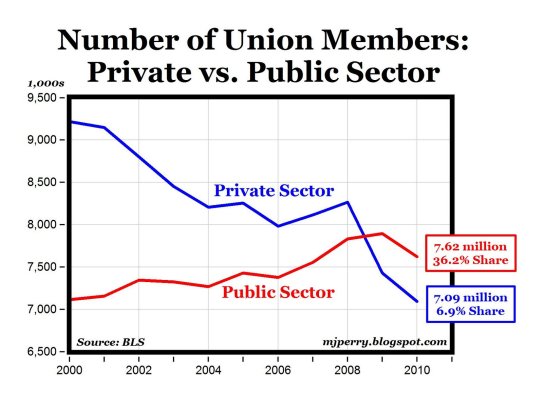I don't see anything indicating that the unions are neccessarily being unreasonable.
This company has high costs, large debts, and declining sales.
The unions will probably fare better in bankruptcy than they would making massive concessions outside of it. If they make massive concessions outside of bankruptcy, the company will still carry all their debts, and may still have to declare bankruptcy down the road.
The unions will still get a haircut in bankruptcy, but so will the other creditors. Management may get changed as well. I suspect that the unions don't want to be the only stakeholder making sacrifices.
I found this like that has some interesting info on some of the history--
Why bankruptcy isn't a brand killer. - NewsFeed Researcher - hostess, company, problems, twinkies, bankruptcy, twinkie, brands, brand, bread, year, breads
Hostess grew by acquisition, so they have a dozen different unions in some 40 multi-employer pension plans. Frankly, it sounds like management didn't think these acquisitions through very well originally.
It talks about some goofy issues with multi-employer pension plans--
" Hostess
pays about $100 million a year to a multi-employer pension plan. Multi-employer plans, thanks to a law Congress enacted in 1980, require each company paying into them to be liable for all plan participants even those that never worked for other companies covered by the plan. Hostess wants to rescind its obligations to the multi-employer plan and start paying into a pension that covers only its workers. Of course, since the company is also hoping to reduce labor costs through the bankruptcy, it's a safe bet that it's not planning on maintaining the existing benefits for its own employees. Congress has made some efforts to address the problems with multi-employer plans in recent years, in part because they
tend to place a disproportionate burden on smaller companies. The whole idea behind multi-employer plans was that small companies could offer retirement benefits that they couldn't otherwise.
[13] With each bakery it bought came pension obligations and a series of different labor contracts it has had trouble reconciling. Hostess, for instance, pays about $100 million annually to some 40 multiemployer pension plans that cover workers at a wide array of companies other than its own, said people familiar with the matter. Hostess wants to switch to a so-called single employer plan that covers only its own workers. "
OK, I put this in the political forum since it will likely be batted around a bit before Porky comes....
But, I do not see why a union can not see the writing on the wall and try and get the best deal they can... when NOBODY wants to buy a company, there has to be something terribly wrong with it...
(then again, maybe this is what they wanted so they go under the gvmt run fund... who knows for sure)..
Hostess returns to bankruptcy over pensions - Yahoo! News

